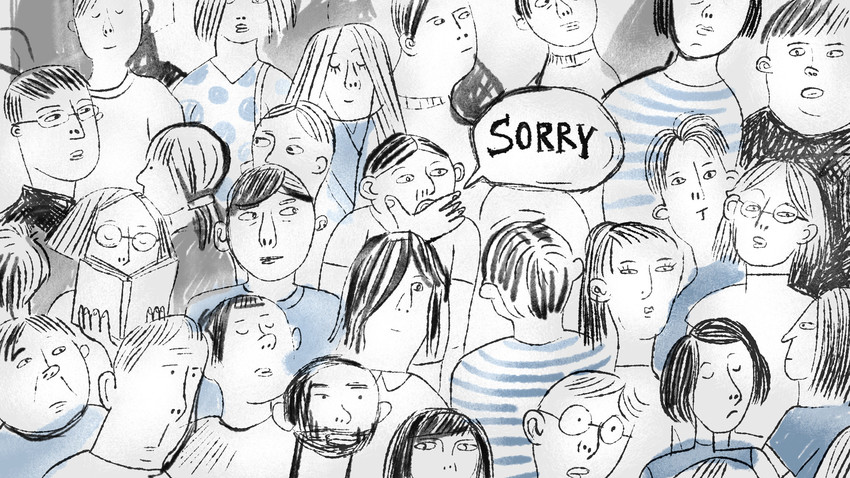
Today in a Russian crowd you are "highly likely" to hear "sorry" instead of Russian words.
Natalya NosovaIt’s a rare occasion to hear typical Russian “Izvinite” or “
[in Russian]: Did you break my favorite cup?!
- Sorry.
[in Russian]: You spilled juice all over me!
- Sorry.
[in Russian] Where is the article on Russians who say “sorry”?! You broke all the deadlines!
- Sorry.
This sounds strange at first, especially because that “sorry” has a direct
But Russian linguist Alexey Mikheev sees nothing unusual in any of this.
“Common short words often move from English to Russian. ‘Sorry,’ just like similar borrowed words, is short and convenient. The Russian words ‘izvinite,’ ‘prostite’ have three to four syllables while ‘sorry’ is just two. It’s easier to say,” Mikheev explained to Russia Beyond. He also emphasized that using “sorry” is related to the spread of English, which more and more Russians know and “import” into Russian.
People seem to agree that “sorry” in English is quite convenient. “It’s just shorter, more laconic, than going through ‘izvinite,’” says Victoria, an entrepreneur. Artemy Lebedev, a well-known designer, even joked about this in his blog: “Using just words from the old Russian language is as unhealthy as sleeping only with your relatives. Imported words are like fresh blood—the language gets richer with them.”
But a simple “sorry” isn’t the only option, and there is a more exotic variation: “
This version is even more informal, and many Russians can’t stand it. “Who the hell is this Armenian guy Soryan?” LiveJournal user
“Soryan” is regarded as one of the most irritating words in the Russian language, and when asked on TheQuestion.com (the Russian Quora) about what the most annoying words are, people often include “
Linguist Alexey Mikheev just shrugs when asked about it. “People say ‘soryan’ to make themselves sound funnier, less official. It’s a common intention. When saying it, people want to show that they are a bit ironic about their own words, to be perceived as living human beings, not robots.”
Some people even go beyond “
[in Russian]: Did you forget to buy the tickets to Bolshoi for our anniversary?
- Soryan Soryanich!
Some Russian language habits, both in oral and written communication, can be surprising for foreigners. Here is an article on why they use parentheses instead of smileys while texting
If using any of Russia Beyond's content, partly or in full, always provide an active hyperlink to the original material.
Subscribe
to our newsletter!
Get the week's best stories straight to your inbox